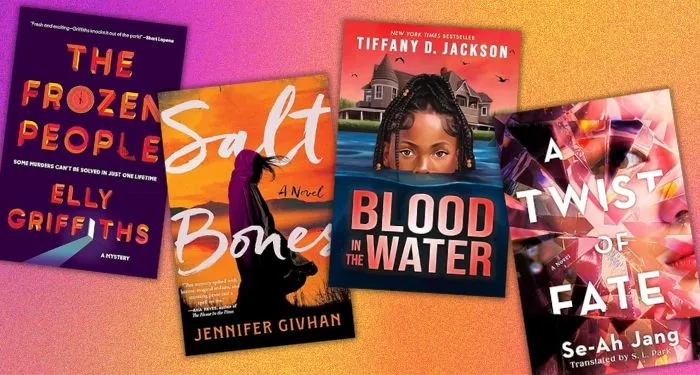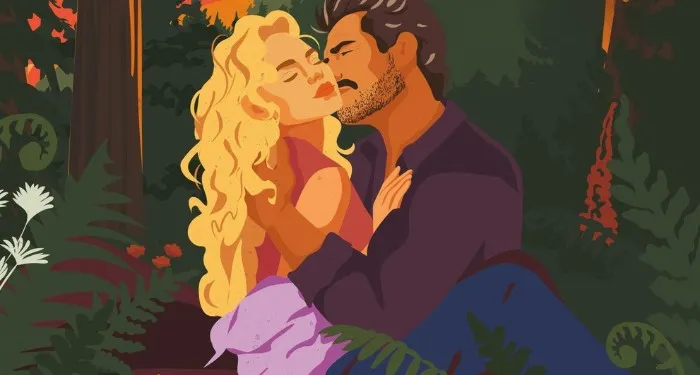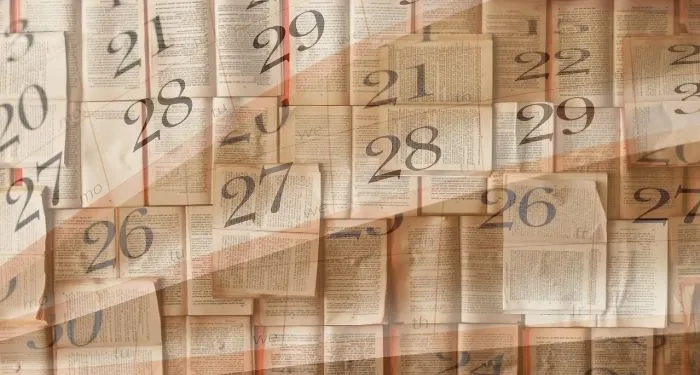For Authors
Warning: This blog contains major spoilers for season 2 of 1923 (and season 1, for that matter).
The first season of the Yellowstone spinoff prequel 1923 was a hit that audiences fell in love with, building on plot points and unspoken promises that had fans eager for its return. Unfortunately, instead of delivering a sweeping reunion, a long-awaited victory, and the emotional payoff everyone was waiting for, season 2 of 1923 gave us a slow unraveling of its most beloved characters, disconnected subplots, and a final twist that felt more like betrayal than tragedy.
For authors, this is more than just frustrating television. It is a cautionary tale about what happens when a story breaks faith with its audience. In this week’s blog, Ginger unpacks the show’s missteps and how they undermined the unspoken contract between storyteller and reader. Mistakes like these risk more than bad reviews. They risk losing the trust of your fans, and once that trust is gone, it is very hard to win it back.
If you’ve been keeping up with your TikTok trends, you’ll know we’re set for a “Yellowstone Summer.” It’s time to put away the board shorts and baseball caps and break out the Stetsons and aviator sunglasses instead. That’s what all the cool kids will be wearing this year (apparently.)
This fashion movement stems from the incredible popularity of the television show Yellowstone on Paramount Plus, a modern Western drama series created by acclaimed American screenwriter, director, and producer Taylor Sheridan.
The show is centered on the Dutton family’s fight to protect their sprawling Montana ranch from developers, rivals, and internal strife. Known for its gritty storytelling, stunning cinematography, and complex characters like John Dutton (Kevin Costner) and Beth Dutton (Kelly Reilly), the show blends family saga with themes of power, loyalty, and the clash between tradition and progress. It’s as American as apple pie, but also unafraid to show the rough edges and injustice of life in the modern American west.
Since hitting our screens in 2018, the Yellowstone brand has expanded into a cultural phenomenon, spawning spin-offs like 1883 and 1923, plus merchandise, and a loyal fanbase drawn to its raw depiction of the American West.
The man behind the popular show is Taylor Sheridan, who started his career as an actor, appearing in shows like Sons of Anarchy, but then found his true calling in crafting these gritty, character-driven stories about life on the American frontier.
His bold storytelling has made him a powerhouse in television, respected for his knack in blending raw drama with cultural commentary. Yellowstone’s raw energy and complex characters have hooked millions, and I’m no exception. I’ve loved the show and the characters ever since I first met them.
Take Rip Wheeler, for instance. His relationship with the fiery Beth Dutton is a masterclass in quiet, powerful masculinity. Rip’s steady strength, the way he anchors Beth’s tempestuous spirit without dimming her fire, feels like a blueprint for how men can show up in a relationship with a strong woman. He’s loyal, unflinching, and doesn’t need to shout to prove his worth. It’s the kind of dynamic that makes you root for them, even when they’re breaking furniture.
From Yellowstone, Sheridan spun off 1883, a gritty pioneer tale, and Landman, a dive into the oil industry’s roughneck world. Each show carries his signature: bold characters, high stakes, and a knack for making you care.
But it was 1923, the second Yellowstone prequel, that truly stole my heart.
In its first season, I fell in love instantly—and not just because it’s a bloody good show. Somehow, 1923 seemed like it was created specifically for me. I’m a history major, and it was set during one of the most fascinating periods of American history, post First World War, when the American Frontier was still “the Wild West”, but also at a time when technology like electricity, cars, and semiautomatic firearms were in their infancy. It made for a wildly romantic setting for a family saga.
And the story extended beyond the shores of America! Again, it felt like Taylor had reached into my brain and chosen elements that he knew would resonate with me.
My parents met and married in Kenya, so when Spencer Dutton and Alexandra’s romance bloomed against the wild backdrop of the same African savannas, it hit me right in the chest. Their love story—two souls finding each other amidst danger—felt like a nod to my family’s own history.
I loved everything about the show, especially how Cara Dutton, played by Helen Mirren, reminded me so much of my own mother! Fierce, unyielding, and the glue holding her family together.
Season 1 was a brutally honest look at 1920s America—tackling drought, Prohibition, and the ugly realities of Native American boarding schools. The characterization in that first season was razor-sharp: Spencer’s war-scarred grit, Alex’s defiant spirit, and Cara’s steely resolve making every episode a gut-punch as the Duttons faced trials and tribulations. It was storytelling done right, and I was all in.
So, you can imagine my excitement for season 2. I was counting down the days, buzzing about the climactic showdown between the Duttons and the villains eyeing their ranch—the devilish Donald Whitfield (former James Bond actor Timothy Dalton) and Banner Creighton (played by famous British actor Jerome Flynn.)
I pictured Spencer and Alex, the heart of the show, riding in to save the day, reuniting with Jacob and Cara for a proper range war. I mean, that’s what Sheridan promised, right?
Season 1 had set up Spencer as the Duttons’ savior, and Alex’s journey to join him was the emotional core. I was ready for epic battles and tearful family reunions. What I got instead was a masterclass in how to betray your audience, and a warning for creative souls about breaking similar promises to our own audiences.
Where did things go wrong in season 2 of 1923?
Let’s start with the slow-motion trainwreck that was season 2. Each episode felt like Sheridan was daring us to keep watching.
For a start, Spencer and Alex, the couple who lit up season 1, barely shared a scene together in the second season. They’d been separated at the climax of season 1, but instead of the cliffhanger being resolved quickly, the two of them were separated right up until the final episode.
Spencer’s solitary journey home then turned into a cartoonish string of misadventures. He become a prizefighter on a ship, played a bootlegger with the Italian mafia, and even brawled with hobos on a train. It was like Sheridan forgot who Spencer was and turned him into a 1920s action figure, going through a bunch of misadventures that wouldn’t have looked out of place in the Tintin in America graphic novel.
Meanwhile, Alex’s arc was pure misery porn. She was humiliated at Ellis Island, mugged at Grand Central Station, and sexually assaulted on a train to Montana. It wasn’t just tough to watch, it actually felt exploitative, like her suffering was there to shock rather than serve the story.
And don’t get me started on Teonna Rainwater’s plotline. Her harrowing escape from a boarding school had been incredibly compelling in season 1, but in season 2, it was so disconnected from the Duttons’ saga that her scenes felt like watching a different show altogether.
The only link? Marshal Mamie Fossett, a rare (but historically accurate) female U.S. Marshal who briefly crossed paths with both Teonna and Spencer (and even then, on separate occasions.)
To my mind, that’s not storytelling. That’s lazy.
By the final episodes, I was practically hate-watching 1923, yet still clinging to the stubborn hope that Sheridan would pull it together before the end. I wanted Spencer to get home, team up with Jacob and Cara, and deliver the range war we’d been promised. I wanted Alex to triumph after her brutal journey and have a heartfelt reunion with her husband.
I didn’t want much, and if Reddit and X were anything to go by, I didn’t seem to be alone in wanting it.
Instead, Spencer didn’t reach Montana until the final episode of the season, and the “war” we’d been anticipating was reduced to a three-minute shootout that felt like an afterthought.
Jacob and Cara, who’d been holding the fort, barely interacted with Spencer. The family reunion I’d been craving? Nonexistent. But the real gut-punch—the moment that broke my faith in 1923—was Alex’s death.
After two seasons of rooting for the feisty upper-class English girl to reunite with Spencer after all their trials, Sheridan had her die from frostbite complications right after giving birth to their son, instead.
No happily-ever-after, no ranch-running power couple. Just Spencer cradling her body in a hospital bed. It wasn’t tragic in a poetic way. It was cruel, and fans agreed.
Posts on X called Alex’s fate “torture porn” and a “Titanic-type ending,” with one user fuming, “We waited YEARS for Spencer & Alex to reunite & that’s how their story ends??”
I felt like Sheridan broke a promise with the way he wrote the ending of season 2, and I’m still salty about it all these weeks later. Season 1 built an epic romance, making us believe Spencer and Alex were destined to overcome the odds. That’s why killing her off didn’t feel earned, it felt like a cheap twist to dodge a happy ending.
Fans on Reddit were also livid, with one calling the finale “one of the most stupid series finales put to the screen in a long time” and arguing that the entire two-season arc was “wasted.”
TikTok and Reddit users slammed the writing, with comments like “Sheridan has to let women in the writers’ room” and “terrible writing” overshadowing the actors’ talent.
Season 1’s 90% Rotten Tomatoes score and 7.4 million debut viewers showed how much people loved it, but season 2’s pacing, contrivances, and that gut-wrenching ending turned fans away, dropping that score to 49% on their Popcornmeter. Some, like me, even swore off Sheridan’s future Yellowstone spinoffs altogether (don’t tempt me, 1944.)
So, what’s my point?
Why am I launching into this angry rant about a show you might not have even watched?
Well, because I think Taylor Sheridan did manage to deliver something out of the disappointing mess that was season 2 of 1923: a lesson in how not to do it.
I think this season serves as something of a wake-up call to aspiring writers like us. When we write, we’re making promises to our readers—spoken or unspoken. If you spend 300 pages building a romance, hinting at a triumphant payoff, you’d better deliver!
Betraying the trust of our audience, like Sheridan did with season 2 of 1923, risks alienating them and turning them off your writing forever.
I’m not saying every story needs a happy ending. Tragedy can be powerful when it’s earned. But when you set expectations (like a Dutton victory with Spencer and Alex at the helm) and then deliver a rushed, miserable conclusion, you’re not being clever, you’re breaking faith.
Readers, just like us fans of Yellowstone, aren’t dumb. They’ll notice when you’ve strung them along or leaned on cheap shocks instead of crafting a cohesive arc with a satisfying conclusion.
Think about your own work. Are you promising a thrilling mystery but fizzling out with a weak reveal? Hyping a hero’s journey only to sideline them? Your readers invest time and emotion, just like I did with 1923. Respect their intelligence by honoring the narrative contract.
If you’re writing a romance, give the payoff fans expect or make the tragedy so inevitable it feels right, like Romeo and Juliet, not a last-minute frostbite death. Plan your arcs early, ensure every subplot (looking at you, Teonna) ties into the main story, and avoid piling on suffering for shock value.
As much as I loved the first season, season 2 of 1923 was a cautionary tale, not a narrative triumph. Even great acting and star power (hello, Harrison Ford and Helen Mirren) couldn’t save a script that disrespected its audience so blatantly.
I’m still mad about Alex’s death, and I’m still promising myself I’m done with Sheridan’s Yellowstone universe (help me stay strong on this one, folks.)
But as writers, we can at least learn from this mess.
Your novel is your promise to readers. Deliver on it, or they’ll toss your book into the DNF pile faster than I deleted Paramount+ from my favorites list.
Well, that’s my take on it, at least. Do you agree? Did you watch 1923?
And since we’re on the subject, what’s the worst reader betrayal you’ve ever read in a story? Spill it in the comment section below, and let’s keep championing stories that respect their audience.
Share this blog
About the Author

Ginger is also known as Roland Hulme - a digital Don Draper with a Hemingway complex. Under a penname, he's sold 65,000+ copies of his romance novels, and reached more than 320,000 readers through Kindle Unlimited - using his background in marketing, advertising, and social media to reach an ever-expanding audience.



















 English (US) ·
English (US) ·